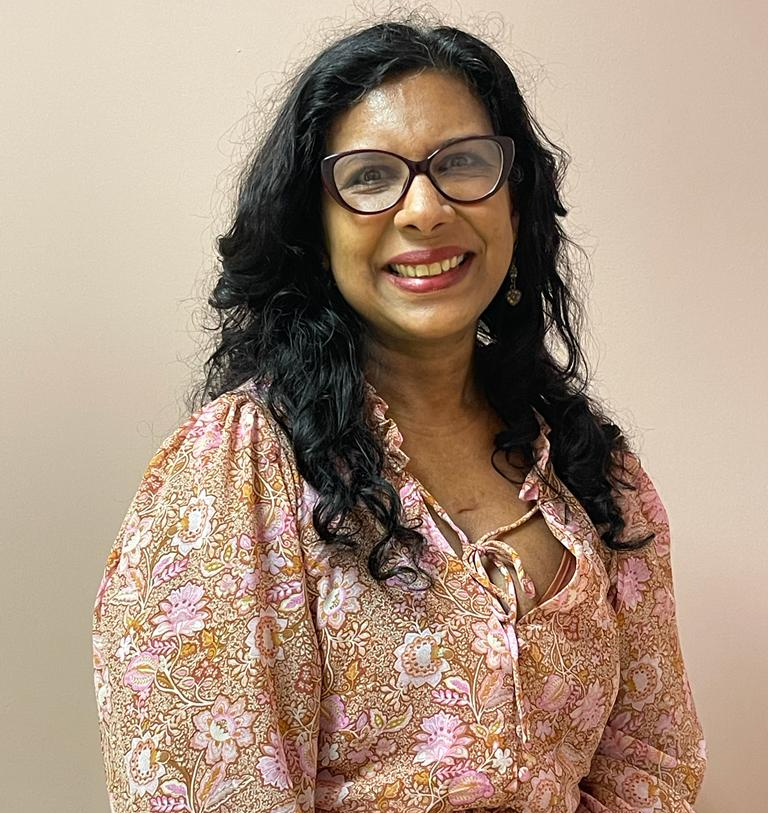Grief Counselling
(Singapore and Online)
Grief is an inevitable part of the human condition. Every person at some point in their life will have to cope with a sense of bereavement. Grief counselling can help you to work through the painful emotions that come with loss and heartache.
What is Grief?
Grief is a natural response to loss and can be brought on by many different circumstances. It may be that you have lost a loved one, relationship, pregnancy, job, or opportunity.
You can also grieve children leaving home, separation from friends and family, unfulfilled desires and dreams, and other life changes. You may even experience anticipatory grief before any loss occurs, such as in reaction to a family member's impending death.
No matter the source of the loss, the outcome can involve dealing with an overwhelming amount of heartache. You may feel overcome and unable to cope with unwanted feelings, including (but not limited to) depression, anxiety, guilt, distress, anger, and fear.
While these emotions are normal symptoms of grief, they are understandably difficult for most people to deal with alone.

What is Grief Counselling?

Grief counselling, also known as bereavement counselling, is a type of psychotherapy that aims to support any person who is coping with life-changing loss.
Another name for psychotherapy is "talk therapy". Talking about your grief is a very important part of the healing process. If you don't have a support network, or you don't feel comfortable talking about your loss with family or friends, then speaking to a professional counsellor can make an immense difference.
By talking to another person about your grief, you give yourself permission to feel it. Avoiding feelings of loss because they are too overwhelming is a very common coping strategy, but this will always make your grief symptoms worse in the long term. Grieving cannot be ignored, it can only be delayed.
Feeling your loss allows you to process and make sense of it. This is ultimately what will lead to healing from your emotional crisis, and finding a renewed feeling of meaning in your life. A grief counsellor can work with you to navigate this challenging journey.
Grief counselling is suitable for adults, adolescents, and children.
To make an appointment,
Call/WhatsApp us on +65 9853-7253, email us at admin@counselingperspective.com, or book online to get instant confirmation.
Get Bereavement Support from a Mental Health Professional
Grief can have severe emotional and mental health consequences. It is the job of a counsellor to help clients find healthy ways of coping with them. Our professional grief
counsellors and therapists have rigorous training and years of experience in supporting individuals and families through loss.
Esther Oon-Bybjerg
Esther is an experienced intimacy counsellor and speaks English and Mandarin. She is trained in Gottman Method Couples Therapy, a renowned therapeutic framework for couples with difficulties.
Dr. Glenn Graves
Dr. Glenn is an American counselling psychologist and life coach who has been based in Singapore since 2004. He has supported many adults, children and families through the process of loss and grieving. His training includes Cognitive Behavioural Therapy and EMDR.
Chei Liang Sin
Chei Liang became a counsellor and therapist because she wanted to make a positive difference in the lives of others. She is experienced in counselling clients on a wide range of mental health concerns, from grief and depression to relationship issues.
Isheeta Punjabi
Isheeta has a Masters in Counseling and has experience in counseling clients through stages of grief, anxiety, relationship struggles and depression.
Claudette Jordan
Claudette is a South African licensed psychologist who has supported individuals, couples and families through various experiences of loss and grief. Her approach is integrative, client - focused and draws from the various different therapeutic modalities that she has expertise and training in.
Lilian Lee-Cutts
Lili holds a Masters in Integrative Counselling from Leeds Beckett University (UK) and a Postgraduate Diploma in Counselling Psychology. She’s known for her warm, accepting, validating and non-judgemental style and works hard to understand the world of each client she sees.
What Are the Different Stages of Grief?
In 1969, the psychiatrist Elizabeth Kubler-Ross published her Five Stages of Grief model, which has become highly influential in how we understand the process of grief.
- Denial. "She's not really gone. It's just not possible." You are in a state of shock and don't truly believe that the loss has occurred. This is an instinctive coping defense that safeguards you from the reality of your loss, and the meaning that loss will have for your life. By becoming numb and disbelieving, you are delaying having to mourn.
- Anger. "Why did this happen to me? It isn't fair!" Your denial is overcome by a feeling of anger, outrage, or even fury. You experience these emotions in reaction to a sense of injustice or wrongdoing. Like denial, this is another type of defense mechanism: it is less painful to be angry about loss than it is to be sad.
- Bargaining. "If only I had done that, then this wouldn't have happened." You relive the events leading up to the loss and wish that you had acted differently. This can be accompanied by feelings of guilt, anxiety, or regret. If you are religious, you may also negotiate with a higher spiritual power to restore your life to normal.
- Depression. "It really happened. What do I do now? How can I go on?" Your crisis reaches its lowest point, and you can no longer mask your pain with other feelings. Though the depression stage can be terribly difficult, it's important to remember that it also carries a positive meaning: You are finally ready to begin healing. It is during the depression stage that you are likely to get the most mental health benefit from professional counselling.
- Acceptance. "I'm going to be okay. Life is going to get better." You have worked through the worst of the crisis and have come to terms with your loss. This doesn't mean that you have completely healed. It can take months or years to fully recover from the death of a loved one, the end of a marital relationship, or any loss of similar magnitude. However, you have reached the point where you believe there are more good days than bad ahead of you.
As conceptually helpful as the Kubler-Ross framework can be, it's important to note that not everyone goes through all the stages, or experiences them in the same order. Different individuals work through loss in different ways. Age, culture, beliefs, and life experiences all play a role in which emotions will manifest during the grieving process.
Remember, there is no right or wrong way to grieve. It's okay to ask for help at any time, either from a trusted friend or family member, or from a professional counsellor.
Types of Grief Counseling
Our therapists employ a number of evidence-based psychotherapy approaches to grief counselling.
Cognitive Behavioural Therapy (CBT)
CBT helps you to identify and overcome distressing thoughts and feelings. It is based on the idea that our thoughts, feelings and behaviours are all connected. CBT trains you to replace negative thought patterns with new, more constructive patterns. This therapy has been shown to be an effective treatment for the symptoms of grief.
Eye Movement Rapid Desensitisation (EMDR)
EMDR is another active type of psychotherapy. It involves accessing the same rapid eye movement (REM) found in a dreaming state, in order to recruit both sides of your brain to work through the grieving process. EMDR has a high success rate for treating anxiety, depression, and other symptoms of bereavement.

Acceptance and Commitment Therapy (ACT)
ACT is a mindfulness-based psychotherapy that teaches you to embrace and accept your emotions, which can help you to move past painful feelings of loss. ACT is often particularly helpful if you have been trying to avoid processing your grief, as it encourages you to face buried emotions and take an active role in your own healing.

Other Counselling Services
For some of our clients, grief counselling can be supplemented or substituted for other forms of therapy. Depending on the individual, other types of counselling may be helpful in dealing with and healing from the emotional pain of grief.
Find a Singapore Counselling Centre Near You
We have five convenient physical locations in Singapore for grief counselling.
Counseling Perspective at Raffles Place
9 Raffles Place
#17-25 Republic Plaza II
Singapore 048619
Counseling Perspective at Oasis
87 Science Park Drive
#03-01 The Oasis
Singapore 118260
Counseling Perspective at Katong
112 East Coast Road
#03-01 i12 Katong
Singapore 428802
Not everyone can visit a counselling centre in person. We also offer online counselling sessions that allow you to speak to a bereavement counsellor from the privacy and comfort of home.
To make an appointment,
Call/WhatsApp us on +65 9853-7253, email us at admin@counselingperspective.com, or book online to get instant confirmation.
Counseling Perspective is a centre for counselling in Singapore. We offer an integrated approach to therapy using techniques and tools tailored specifically to our clients and the issues they face. We help clients so that they can feel empowered to make healthy decisions themselves. We work with adults, kids, couples, and families.
OUR COUNSELLING CENTRE LOCATIONS:
Counseling Perspective at Raffles Place
9 Raffles Place
#17-25 Republic Plaza II
Singapore 048619
Counseling Perspective at Oasis
87 Science Park Drive
#03-01 The Oasis
Singapore 118260
Counseling Perspective at Joo Chiat
291 Joo Chiat Road #05-02
Singapore 427543
Get Connected With Us
Call/Whatsapp: +65 9853 7253 or +65 9636 8060
Newsletter
All Rights Reserved | Counseling Perspective











